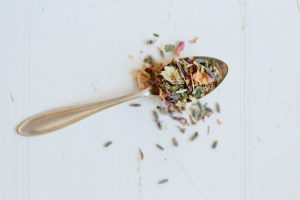The Naturopathic Co.

You're using an outdated browser. Please upgrade your browser to improve your experience.
Approximately 75 percent of women will experience uterine fibroids at some point in their lives. They range in size from a few millimetres, to the size of a watermelon!
Heavy menstrual bleeding
Bloating or fullness in the stomach/pelvic region
Pelvic pressure or pain, heaviness in the pelvic area, or back ache
Changes to your period cycle, length, heaviness of bleed
A longer bleed; a period lasting 5-7 days
Larger and regular clots
Frequent urination or urgency for the bathroom
Difficulty emptying your bladder, constipation
Intramural fibroids are the most common type of fibroid, as they grow within the muscular uterine wall. They can actually distort and stretch the uterus, and they cause heavy periods, longer bleeds, and pressure in the pelvic region.
Subserosal fibroids are fibroids that grow outside the walls of the uterus, pedunculated fibroids grow on small stalks inside or outside of the uterus, submucosal fibroids grow just underneath the uterine lining, and cervical fibroids grow in the cervical tissue.
Hormone imbalances are the root cause of fibroids. Oestrogen and progesterone promote the growth of fibroids, which contain more oestrogen and progesterone receptors than normal uterine muscle cells.
Some other risk factors for fibroids are: hereditary links, age (30-40s), diet (poor quality), obesity, high blood pressure, hypothyroidism, birth control pills.
Any type of inflammatory food can potentially make fibroids worse: trans fats, processed meats, fatty meats, chemical additives, dairy (non-organic), refined sugar, refined carbohydrates, alcohol, caffeine.
Eat organic fruit and vegetables. Some pesticides may impact oestrogen levels.
Eat lots of green leafy vegetables. these have anti-inflammatory effects and are a rich source of vitamin K to help blood clotting.
Eat lots of cruciferous vegetables. They help will keeping oestrogen in check by helping to clear it on time. So eat a diet high in broccoli, cauliflower, brussel sprouts, bok choy, cabbage, rocket.
Eat beta carotene-rich foods. Our body turns beta carotene into vitamin A, which is needed for repair of healthy tissues. Include carrots, sweet potatoes, kale and spinach.
Eat flaxseeds. Flaxseeds help to modulate oestrogen levels. This can really help to shrink fibroids. Include 2 tablespoons per day. You can sprinkle them on salads, or oats, or put them in a smoothie.
Eat less starch. Insulin also drives fibroids, so opt for whole grains instead of refined ‘white’ grains and processed foods.
Try different teas to help balance hormones and encourage a healthy uterus: chasteberry, red raspberry, dandelion root, green tea, nettle.
Vitex agnus castus (Chaste Tree) This herb can modulate oestrogen and boost progesterone levels.
Omega fatty acids (fish oil capsules) to reduce inflammation (or eat salmon, walnuts, flaxseed oil).
B vitamins to support liver function to help clear excess oestrogen.
DIM to support detoxication of oestrogen.
Antioxidants such as zinc, selenium, and vitamin E.
If you suspect you suffer from fibroids, reach out to us. We’ll guide you through the various ways that natural medicine can help, and provide you with a comprehensive treatment plan. Book below.

Yvette is a qualified Naturopath and Nutritionist, MINDD Practitioner, member of the Naturopaths and Herbalists Association of Australia.
Yvette specialises in the treatment of gut health and digestive complaints, skin issues, mood disorders, hormonal concerns, fatigue, and more.
Yvette consults Australia-wide.
Comments are closed.